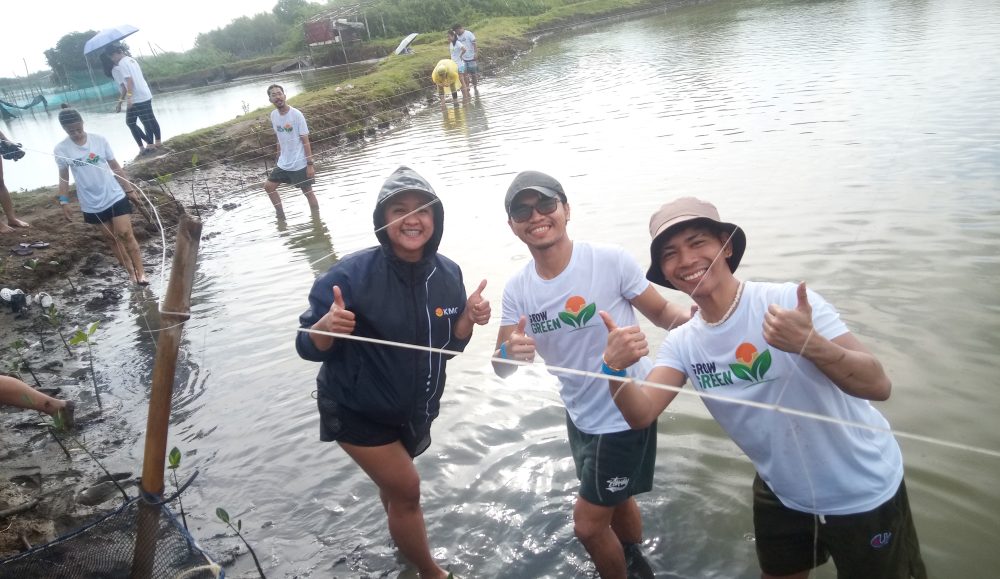FEED takes some of its strategic guidance, solutions and action on the basis of the eNGP as noted below.
Extract of E.O. No. 193, Series 2015:
“Sec 3. Scope and Coverage. Consistent with the updated Philippine Master Plan for Forestry Development (2016-2028), this Order shall cover all the remaining unproductive, denuded and degraded forestlands to be managed for production and protection purposes as well as to achieve carbon neutrality.
This will include development of new plantations and sustainable management of established plantations as well as protection of existing forests.”
About Expanding the Coverage of the National Greening Program (eNGP)
On the heels of the implementation of DENR’s National Greening Program from 2011 to 2016, the state saw it fit to further extend its implementation to year 2028 and, thereby, issued Executive Order No. 193, series of 2015 titled “Expanding the Coverage of the National Greening Program” (ENGP). It aims to cover the remaining 7.1 million hectares of unproductive, denuded and degraded forestlands nationwide.
The 2011-2016 NGP, which was created by virtue of Executive Order No. 26 issued on February 24, 2011, posted an accomplishment of some 1.7 million hectares that were planted with 1.3 billion seedlings, including the creation of h some four million jobs that benefitted around 558,323 individuals as hired workers.
Under the ENGP, the Duterte Administration targets to reforest some 1.2 million hectares between 2017 to 2022 in accordance with the updated 2016-2028 Master Plan for Forestry Development.
Foremost in ENGP’s objectives is to provide opportunities for communities to develop social enterprises to produce sustainable livelihood and optimize benefits, and encourage local government units, organized upland communities in the development of forest plantations including forest parks.
The ENGP likewise seeks to attract private sector interest to invest in forestry-related undertakings like tree plantation development and forest protection projects as a measure to achieve carbon neutrality.
Source: https://www.denr.gov.ph/priority-programs/national-greening-program.html
Mangroves & Bamboo Take Central Stage of Commodity Roadmap of eNGP

Image Source: iucn.org
Mangroves and bamboo are among the commodities of the Commodity Roadmap of the Enhanced National Greening Program, a convergence initiative reforestation program the second phase of which is set to commence from 2017-2028. These two commodities shall be given prominence in the country’s campaign to combat climate change alongside the planting of beach forest species like Nipa, Bitaog, Bani and Talisay…

Image Source: news.mb.com.ph
In her statement delivered during the Joint High-Level Segment of COP 22 last November 17, 2016 at Marrakesh, Morocco, Secretary Lopez announced these two thrusts in addressing local climate change concerns. She further clarified that while working on keeping the levels of temperature to 1.5 degrees Celsius, this need not curtail economic development in the country as she explained how mangroves and bamboo could also be drivers of economic growth while serving as climate change mitigation and adaptation responses.
Mangroves not only protect islands from storm surges. Mangroves as spawning grounds also help turn these islands into economic zones because of increased harvest of shrimps and other marine life.
Studies reveal the capability of bamboo to sequester carbon, thus its significant contribution to climate change mitigation. It has economic potential too as building material and other uses such as floor tiles, textiles and for low cost housing, among others.
The revised implementing rules and regulations (IRR) of Executive 193 under Secretary Lopez enhancing the National Greening Program boost the role of social enterprise as means to improve the social wellbeing, environmental sustainability and economic performance of a community.
Source/Home of ENGP: http://ngp.denr.gov.ph
© FEED, Inc.
